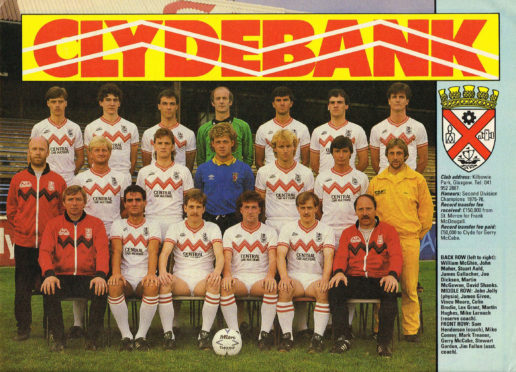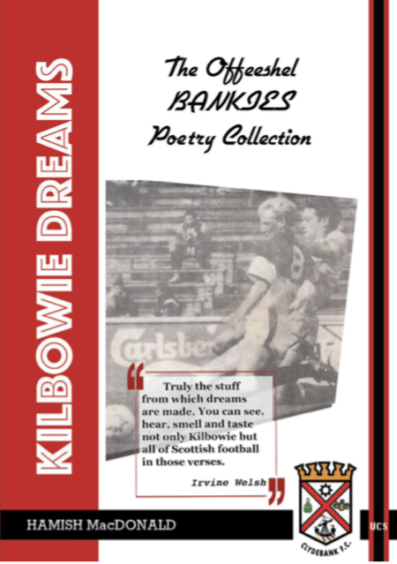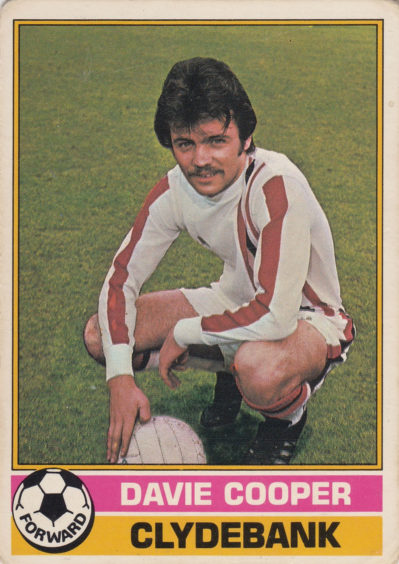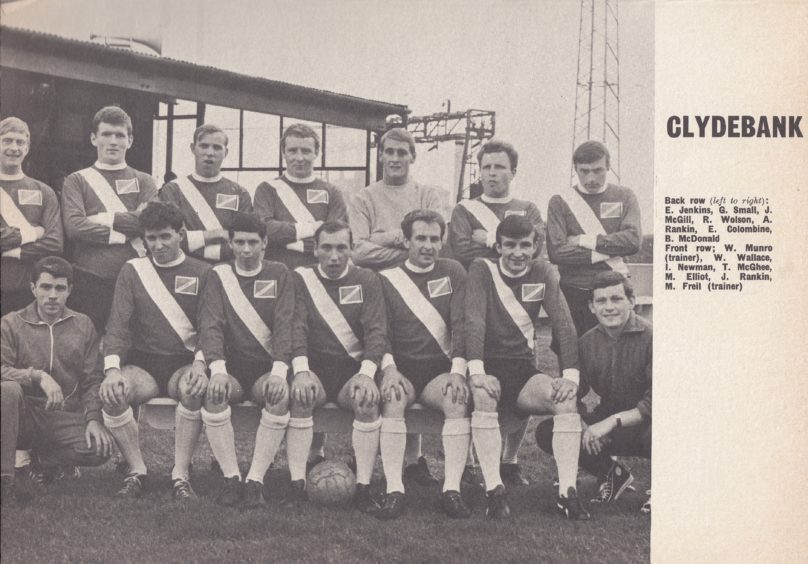
The mixed fortunes of one of Scottish football’s most historic names has been charted in verse by the club’s new poet in residence.
Hamish Macdonald has put together a collection of work based on the highs and lows of following Clydebank FC in his new role as the Bankies Bard.
The aim is to chart the club’s rollercoaster history and its progress on a new journey in the Scottish football pyramid, as well as its links to the town it calls home.
The book follows the success of Hamish’s piece Turn on the Floodlights, a poem about the club trying to find a new permanent home, which has been viewed over 114,000 times on Twitter.
17 years ago, we were left without a home and without a club.
It's almost time to 'Turn on the Floodlights'.
Poem and narration: @ChanterRanter pic.twitter.com/8fO0H5Ke15
— Clydebank FC (@clydebankfc) July 1, 2019
“We were quite astounded by the interest,” he said. “I also had a poem about Davie Cooper, which I had published in 2018 and got quite a lot of nice feedback about.
“It had quite broad appeal among fans, he was such a fantastically gifted player and al- round nice person.
“I built on that and knocked together a wee collection of poems and a song. Andy Smith from Scots Footy Cards offered to design the book, so it’s like a match programme.
“The idea was to chart the – sometimes chequered – past and progress of the club, and also reflect a bit on the town of Clydebank itself.”
Clydebank FC has had several incarnations, most notably the senior side which played in the Scottish leagues from 1965 to 2002.
They were the legendary Davie Cooper’s first and last senior club, and in the 1990s were even once sponsored by local heroes Wet Wet Wet.
But fans were left without a team to follow in the 2002-2003 season when the assets were bought by an Airdrie consortium and the club moved to Lanarkshire.
Hamish, also a playwright and novelist, recalled: “We’ve been through a lot, from the early days in the seniors to being taken over by unscrupulous owners who only wanted the club’s registration. They had no interest in the club at all, trying to move it to Dublin and then abandoning the club.
“It was going to be offered to the supporters and they put together a fund but then, at the last minute, the supporters were gazumped by a consortium from Airdrie.
“All they had left was a crest and a name, and within a year managed to get the team competing again at the best level in the juniors and now into the West of Scotland Football League.
“Arguably, we’ve experienced the highs and lows of the football experience to more extremes than any other fan base in Scotland!”

Like many clubs across Scotland, Clydebank is closely in tune with their local community.
After the publishing costs, profits from the book will be given to a community initiative of the club’s choosing.
Hamish said: “There’s the old cliché of being more than a club, which loses its meaning as it’s trotted out so often, but I think it definitely applies in Clydebank’s case, having been built up by the fans and being at the heart of the community, with a fantastic youth setup and doing a lot of work in the community.”
Already hailed by the likes of St Johnstone fan Stuart Cosgrove and Hibee Irvine Welsh, Hamish hopes the book will appeal beyond Clydebank fans to the wider world of football.
“It’s as much about the football experience as it is about just Clydebank,” he said. “There’s a few football poets in Scotland and the way they approach it is that it makes football accessible to all comers. It’s not just about the club, it’s about the game. It’s nice to be a part of that movement now.
“I think there’s definitely a place for poetry in football, it’s such a shared experience.
“When I was wee, my grandfather played for Renfrew, Petershill and Queen’s Park. He was a bit of a character, and when he was in his eighties he used to recite this poem called The Goalkeeper’s Ghost, which always left a big impression on me.”
New Kilbowie Park, built in 1939, and home to Clydebank FC until 1996. pic.twitter.com/HQYcaVueND
— Football Grounds (@YardOfGrass) October 23, 2014
Hamish has followed the club for decades, being part of the journey all the way.
He describes his early memories of games in the late 1960s, including the club’s first win in the senior leagues as Clydebank FC.
“I vividly remember the early years. I can remember their first victory in that era against Brechin City and Kilbowie Park. It was a freak goal where the keeper kicked the ball against the attacker from a kick-out and it looped over his head! I can remember that like it was yesterday, and I was only about eight years old.
“It’s amazing how ingrained it becomes. I remember going to Hamilton as my first away game, the bus journey at least. It was before the M8 and going to Hamilton was a trek.
“We went through the east end of Glasgow and someone saw a colour TV in the shop window and everybody on the bus poured over to see it! Wee memories like that stick with you, not just the games.”
These shared memories are something that will be mostly missing when the history books look back on 2020.
Clydebank began a new era in the newly formed West of Scotland Football League behind closed doors, and few grounds across Scotland have been able to welcome fans this season.
Hamish can’t wait to get back on the terraces and experience all the emotions – and aromas – that Scottish football has to offer.
He said: “I massively miss the company, the matchday experience. The chance to break out of your everyday routine, meeting up with pals, being taken out of yourself for 90 minutes or beyond.
“There’s a lot of escapism. You even miss getting upset and moaning and complaining at decisions… the smell of pie and Bovril, the whole thing.”

Enjoy the convenience of having The Sunday Post delivered as a digital ePaper straight to your smartphone, tablet or computer.
Subscribe for only £5.49 a month and enjoy all the benefits of the printed paper as a digital replica.
Subscribe

